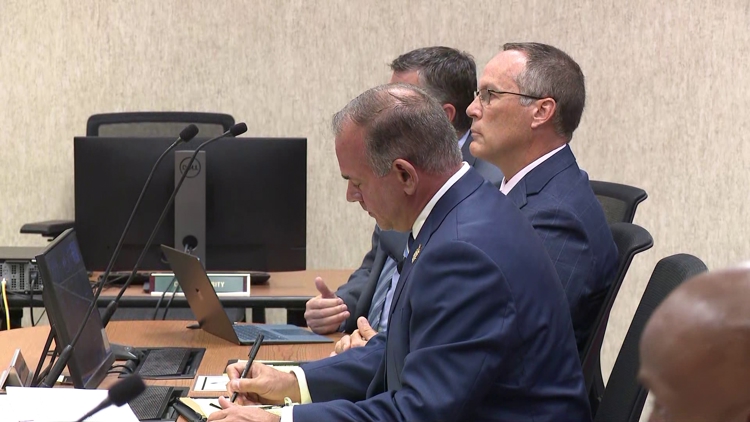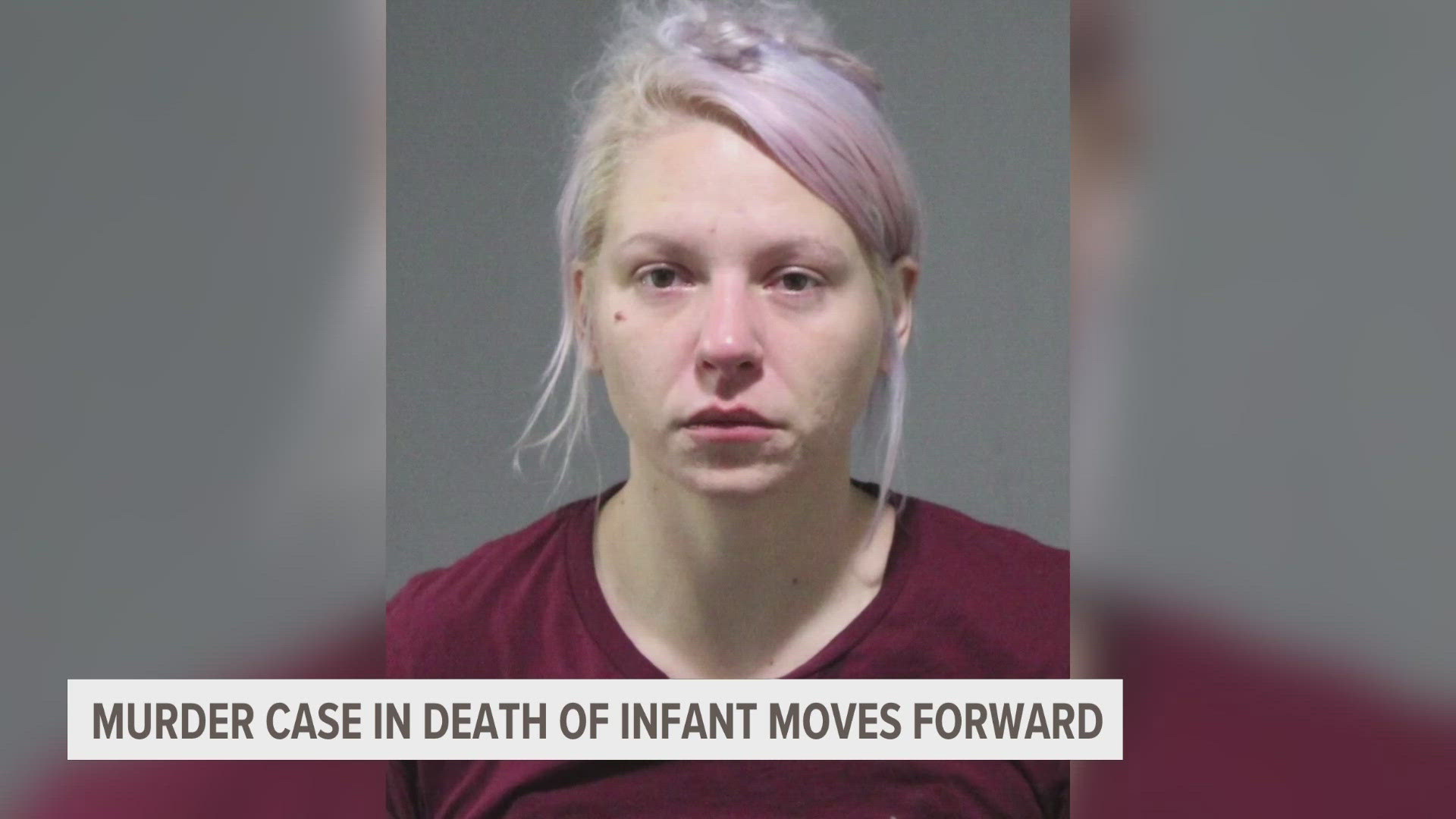GRAND RAPIDS, Mich. —
A former state trooper accused of hitting and killing Samuel Sterling with his patrol vehicle appeared in court today, where a judge was set to decide if the case heads to trial.
Brian Keely, a former Michigan State Police (MSP) trooper, was originally scheduled to appear in court for his probable cause hearing back in June. That hearing was pushed back due to a delay in processing evidence, according to court documents.
In a preliminary hearing that lasted over four hours, the prosecution brought in four witnesses before the court and multiple pieces of evidence.
The first witness, Ross Eagan, was surveilling Sterling in April with the Metro Pattern Crime Team, or MPACT. Since Sterling had active felony warrants including violence, assault, and weapons, Eagan said MPACT decided to call on the State Marshall team for assistance.
"There were six active warrants for him...I believe two were active felony or violent felony warrants. One was for a domestic incident involving a handgun and threats, in the city of Kentwood in 2023. Another one was another domestic assault and larceny in the city of Grand Rapids. Two others were probation violation warrants with, I believe felony, original felony charges. And two were misdemeanor bench warrants, if I'm not mistaken," Eagan testified.
Brian Keely was part of the group called in to assist.
MPACT and the other troopers and officers tracked Sterling to a Speedway in Kentwood, where they attempted to box in his vehicle and prevent him from running. Once he fled from his vehicle, Eagan followed him on foot.
"These are rapidly evolving situations. And our goal was not to have him driving the vehicle...The goal was to, attempt apprehension with him on foot," Eagan said.
A few vehicles followed Sterling, Eagan recalled, but they stopped in a Burger King parking lot and followed him on foot. From Eagan’s body camera footage, though, Keely did not get out of his car, instead pinning Sterling to the Burger King building with his vehicle.
Eagan testified that there were no weapons found on Sterling or in his car.
The second witness, Aaron Tubergen, has been with Michigan State Police for 11 years and was on scene in April. Tubergen was able to obtain video from inside the Burger King’s indoor play area, where the drive through exit, Sterling, and Keely could be seen.
"I was introduced by one of the county police officers to a manager at the Burger King. She indicated, that there are security cameras on the building and she had access to the DVR. She allowed me to export videos from that DVR," Tubergen testified.
There was also more body camera footage shown, which shows more of the responding officials stopping and pursuing on foot in the Burger King parking lot.
A third witness, who specializes in forensic analysis of video, was dismissed after an argument between both sides.
The fourth and final witness, Allen Avery, is a Michigan State Police crash reconstructionist. He was not at the scene when it was actively happening but arrived later that day to investigate.
"I noticed that there wasn't a lot of debris on the ground. There wasn't a lot of tire marks or skid marks that were evident. There wasn't a lot of marks on the building or on the curb or anything like that that I could see," Avery testified.
There was not a lot of damage to the car, Avery said. But through data captured by the car, he was able to determine speeds and stop times of Keely in his car.
Avery testified that Keely was roughly going eight miles per hour when he hit Sterling, after slowing from about 26 miles per hour just two seconds before impact.
The defense argued that rain that day could have impacted Keely’s steering and stopping abilities, but Avery said that that isn’t the case.
"It would make a little bit, but negligible. Assuming that the we don't have pooled puddled flowing water or anything like that. So just, just, you know, to the way the scene looks through the photographs, I don't think it would be a substantial reduction in the drag factor of the roadway," Avery said.
Avery also said that there were no visible markings to the side of the restaurant from the car, but Sterling did leave a mark.
"It was a bluish color that was about the color of Mr. Sterling's blue jeans," Avery testified, referring to a scuff mark found on the building.
In closing statements, the prosecution said that Keely may have not intended to kill Sterling, but there was no reason to use the car to pursue him. Even though he did have felony warrants, he did not have a weapon on him at that time.
The defense said that Keely did what he needed to do, and that Sterling was a dangerous suspect and that all charges should be dropped, since the prosecution could not prove malice which is needed for murder charges.
The judge did not make a ruling today on the issue. She said there will be a Zoom on Aug. 22 at 3:30 p.m. with the decision after she looks over the findings. There is a federal investigation which will have a hearing on Aug. 21, but that outcome will not affect her decision on this case.



